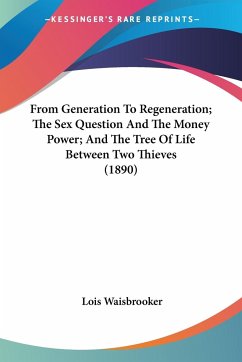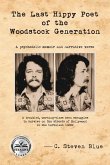The Second Generation is a novel written by David Graham Phillips. The book is a sequel to his earlier work, The Cost, and follows the lives of the next generation of characters. The story takes place in New York City during the early 1900s and focuses on the lives of the wealthy elite. The main character, John Ward, is the son of the original protagonist, Richard Ward. John is a successful lawyer who is engaged to a beautiful socialite named Alice Van Dorn. However, his life is turned upside down when he discovers a dark secret about his father's past. As John tries to come to terms with this revelation, he must also navigate the complexities of his relationship with Alice and the expectations of his social class. The Second Generation is a compelling story about love, betrayal, and the consequences of one's actions. Phillips' writing style is engaging and vivid, painting a vivid picture of the world of the rich and powerful during this era. Overall, The Second Generation is a must-read for fans of historical fiction and anyone interested in the lives of the wealthy during the early 1900s.1906. American writer, Phillips worked as a newspaper reporter in Cincinnati and New York City, rising to editorial rank on the New York World, for which he wrote until 1902. He became noted as a muckraker and was famous as the author of a series of sensational articles exposing corruption in the U.S. Senate that appeared in Cosmopolitan magazine. Phillips¿¿¿¿¿¿¿s novels, powerful although often crude, deal with corruptive influences in society and general social problems, such as the status of women. He came to an untimely death when he was murdered by a young musician who accused him of having cast literary slurs on his family. The Second Generation begins: In six minutes the noon whistle would blow. But the workmen-the seven hundred in the Ranger-Whitney flour mills, the two hundred and fifty in the Ranger-Whitney cooperage adjoining-were, every man and boy of them, as hard at it as if the dinner rest were hours away. On the threshold of the long room where several scores of filled barrels were being headed and stamped there suddenly appeared a huge figure, tall and broad and solid, clad in a working suit originally gray but now white with the flour dust that saturated the air, and coated walls and windows both within and without. See other titles by this author available from Kessinger Publishing.This scarce antiquarian book is a facsimile reprint of the old original and may contain some imperfections such as library marks and notations. Because we believe this work is culturally important, we have made it available as part of our commitment for protecting, preserving, and promoting the world's literature in affordable, high quality, modern editions, that are true to their original work.
Bitte wählen Sie Ihr Anliegen aus.
Rechnungen
Retourenschein anfordern
Bestellstatus
Storno








